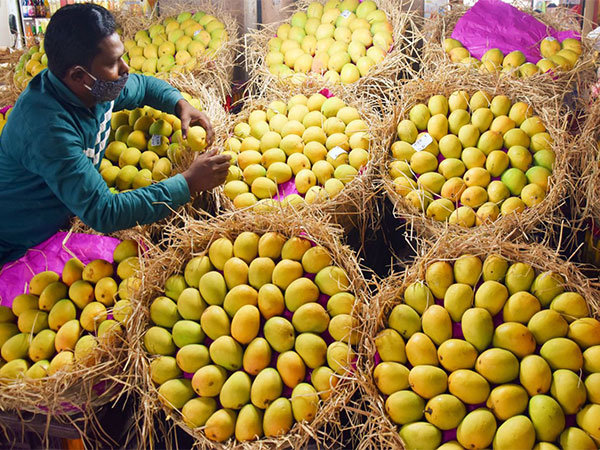New Delhi [India] August 8 (ANI): The first-ever interstate trade under the National Agriculture Market (eNAM) between Jammu and Kashmir and Maharashtra reached Pune this week. A truck carrying 11 metric tonnes of apples and pears from the valley arrived at the Gultekdi APMC (Agricultural Produce Market Committee (APMC)) in Pune, marking a milestone in the integration of agricultural mandis across states through a centralized digital platform.
The eNAM platform, launched by the Government of India, aims to connect APMCs across the country to create a unified national market for agricultural commodities. Maharashtra has been one of the early adopters of this digital transition. “Under the eNAM scheme of the GoI, we have associated 133 APMCs of Maharashtra,” said Vinayak Kokare, joint director at the Maharashtra State Agricultural Marketing Board. Kokare emphasized the broader vision behind the scheme: “We appeal to the APMC traders to do maximum trading under eNAM… This will assure good price discovery, assurance of quality, the trading and transaction will all be transparent.”
Speaking to ANI, apple merchant Suyog Zende, who was part of this landmark trade, called eNAM a game-changer for both farmers and traders. “This is the dream project of PM Modi and Maharashtra CM Devendra Fadnavis. This trade should go on, and it happens online… This will provide government-verified merchants from all over India to the farmers, and that too with transparency,” Zende explained. He also pointed out how the system benefits traders: “The merchants will also benefit from it as it will save travel cost and time.”
Through the digital mechanism of eNAM, farmers and traders from far-flung regions are now able to bypass traditional barriers, middlemen, and inefficiencies. This recent trade between J&K and Maharashtra reflects a larger shift in how agri-markets operate in India, pointing to a growing maturity in India’s agri-tech infrastructure.
With more APMCs linking into the system and with stakeholders recognizing its benefits, the government’s push toward transparent, fair, and efficient agri-markets appears to be gaining traction. (ANI)

















